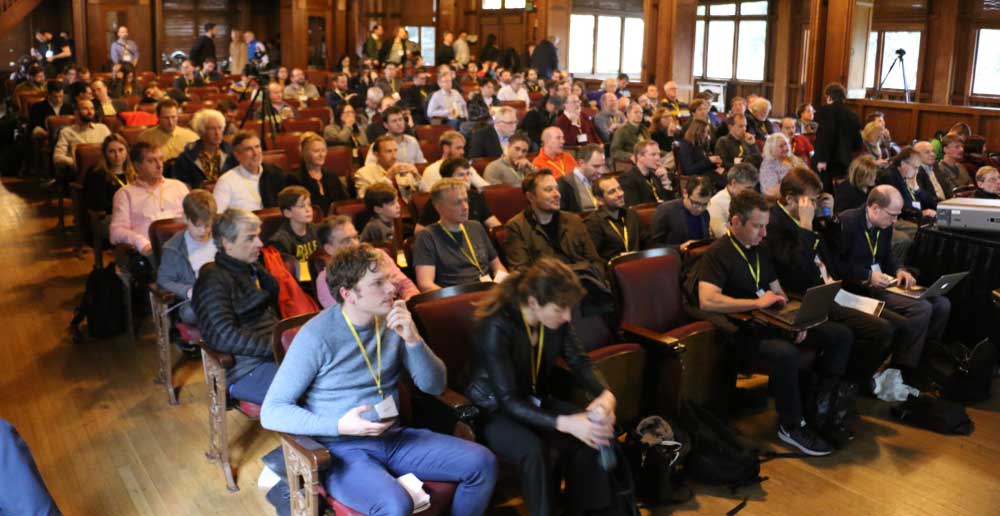Beneficial AI conference develops ‘Asilomar AI principles’ to guide future AI research
February 3, 2017

Beneficial AI conference (credit: Future of Life Institute)
At the Beneficial AI 2017 conference, January 5–8 held at a conference center in Asilomar, California — a sequel to the 2015 AI Safety conference in Puerto Rico — the Future of Life Institute (FLI) brought together more 100 AI researchers from academia and industry and thought leaders in economics, law, ethics, and philosophy to address and formulate principles of beneficial AI.
FLI hosted a two-day workshop for its grant recipients, followed by a 2.5-day conference, in which people from various AI-related fields hashed out opportunities and challenges related to the future of AI and steps we can take to ensure that the resulting technology is beneficial.

Beneficial AI conference participants (credit: Future of Life Institute)
The result was 23 Asilomar AI Principles, intended to suggest AI research guidelines, such as “The goal of AI research should be to create not undirected intelligence, but beneficial intelligence” and “An arms race in lethal autonomous weapons should be avoided”; identify ethics and values, such as safety and transparency; and address longer-term issues — notably, ” Superintelligence should only be developed in the service of widely shared ethical ideals, and for the benefit of all humanity rather than one state or organization.”
To date, 2515 AI researchers and others are signatories of the Principles. The process is described here.
The conference location has historic significance. In 2009, the Association for the Advancement of Artificial Intelligence held the Asilomar Meeting on Long-Term AI Futures to address similar concerns. And in 1975, the Asilomar Conference on Recombinant DNA was held to discuss potential biohazards and regulation of emerging biotechnology.
The non-profit Future of Life Institute was founded in March 2014 by MIT cosmologist Max Tegmark, Skype co-founder Jaan Tallinn, DeepMind research scientist Viktoriya Krakovna, Boston University Ph.D. candidate in Developmental Sciences Meia Chita-Tegmark, and UCSC physicist Anthony Aguirre. Its mission is “to catalyze and support research and initiatives for safeguarding life and developing optimistic visions of the future, including positive ways for humanity to steer its own course considering new technologies and challenges.”
FLI’s scientific advisory board includes physicist Stephen Hawking, SpaceX CEO Elon Musk, Astronomer Royal Martin Rees, and UC Berkeley Professor of Computer Science/Smith-Zadeh Professor in Engineering Stuart Russell.
Future of Life Institute | Superintelligence: Science or Fiction? | Elon Musk & Other Great Minds
Elon Musk, Stuart Russell, Ray Kurzweil, Demis Hassabis, Sam Harris, Nick Bostrom, David Chalmers, Bart Selman, and Jaan Tallinn discuss with Max Tegmark (moderator) what likely outcomes might be if we succeed in building human-level AGI [artificial general intelligence] (and beyond), and also what we would like to happen.